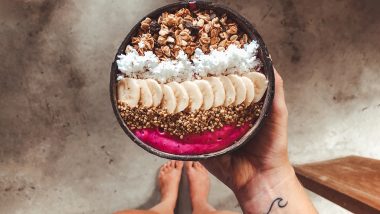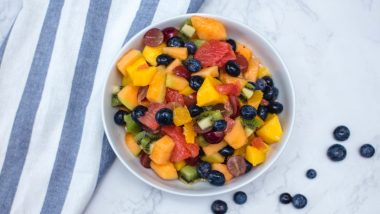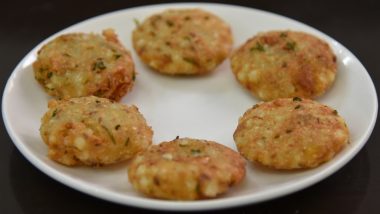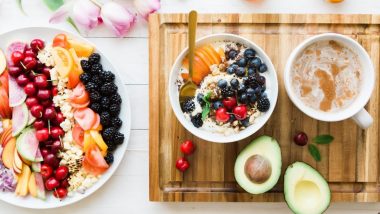As the saying goes: Genetics load the gun, but environment pulls the trigger. You, therefore, need to eat a balanced diet to prevent a lifestyle disease. But sometimes, eating healthy can seem so confusing. Is fat good or bad? Should you snack in between your meals or not? There is a lot of conflicting nutrition information out there, but there are pretty much certain guidelines that all nutritionists follow. This list is the closest thing to the eating-right bible that you are going to find. Take note!
1. Eliminate All Hydrogenated Fat
Hydrogenated oils lurk in many processed oils, margarine, baked and processed foods like cookies and crackers. Swap your processed oils with healthier options like organic, extra virgin and cold-pressed olive oil, coconut oil, sesame oil, and nut oils. How to Cook Vegetables Without Losing Their Nutrients: 4 Rules to Remember.
2. Increase Intake of Omega-3 Fatty Acids
Add more omega-3 rich foods like salmon, sardines, flaxseeds, and seaweed to your plate. Consuming healthy fats can improve your overall cholesterol profile and thereby benefit your heart. Looking For Healthy Lifestyle? 6 Unhealthy Habits to Change For a Healthy Future!
3. Avoid Diet Sodas and Fruit Juices
Those sodas and diet drinks can adversely affect your lipid and sugar metabolism. There is enough research that shows that liquid-sugar calories are one of the biggest contributors to diabetes, heart disease, and obesity. Also, do not fall for 100 percent fruit juice as they are not only loaded with sugar but the processing removes the fruit fibre.
4. Stabilise Your Blood Sugar
Imbalances in your blood sugar can contribute to heart disease so eat a lot of protein, healthy fats and carbohydrates to keep your blood sugar levels steady. Also, avoid processed sugars and never eat carbohydrates alone. 10 Heart-Healthy Foods That You Must Include in Your Diet.
5. Eat a Colourful, Plant-Based Diet
Increase your intake of whole foods rich in disease-fighting vitamins, minerals, fiber, phytonutrients, antioxidants, and anti-inflammatory molecules. Aim for at least eight to ten servings of colourful fruits and vegetables a day.
6. Hydrate With A Lot of Water
It's a universal fact that humans need water to survive. Quenching your thirst by sipping throughout the day is the best way to replenish fluids naturally lost.
7. Snack When It Is Necessary
If it is going to be more than five hours between meals, you should grab a snack. It will not only give you the needed energy but also help to keep you from overeating at your next meal.
And finally, indulging from time to time can be a good way of sticking to an overall healthy diet. Enjoy your food, listen to your body, and just do the best you can at every meal.
(The above story first appeared on LatestLY on Oct 16, 2019 08:00 AM IST. For more news and updates on politics, world, sports, entertainment and lifestyle, log on to our website latestly.com).













 Quickly
Quickly




















